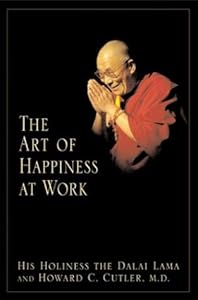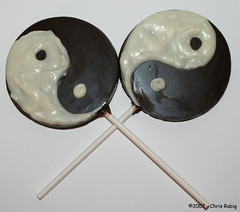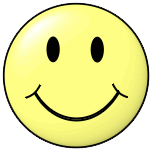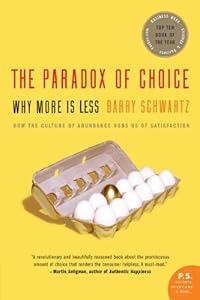Before we get to the Great Time Excuse - and our poll results (last chance to weigh in!) - we should go back a few steps and discuss terminology. (This is when my Psych 101 students start hurling dagger vision at me but hang in there, this is important). Here's what I mean when I talk about the following:
- Job: The thing you drag your butt to everyday, mainly because you'll get a paycheck to show for it. You may like the company of your co-workers and there might be small pleasures afforded by the job tasks themselves, but by and large, you didn't envision this being your life when your grade school teacher asked you, "What do you want to be when you grow up?" (Your answer: A Part-Time Impact Team Member at Abercrombie & Fitch? I think not. [Seriously, that's what they're called.])
- Career: A series of jobs in the same field or specialization area, ideally with an increase in rank, status and pay over time. You may invest more of yourself in a career than a job, but there's still a sense of disconnect between your SELF and what you do. In other words, career is a glorified job. At least in my terminology.
So where does that leave us? Nowhere I want to be. There has to be something more. And there is. I just have no idea what to call it.
In The Art of Happiness at Work, the Dalai Lama distinguishes between job, career and calling. His definitions aren't too different from my own. He says job is something you do for money, a career is something you do for status, and a calling is something you would do even if you never got paid.
That sounds great to me. But I find the term "calling" to be problematic in our modern, secular society. I think it scares too many people off from fighting the good fight, from searching for something more in their lives. To be called you need to have a belief in some higher power that's doing the calling now don't you? While I personally hold that belief, most 20somethings I encounter seem not to, which is perfectly valid. (Although I can't reconcile these personal observations with reports that 84% of 20somethings do in fact believe in God or a universal spirit. Go figure.)
I find the vaunted tome of job seekers, What Color is Your Parachute?, problematic for the same reason. In fact, the author, Dick Bolles, was a clergyman, so language like "calling" is sprinkled throughout the text. There's nothing wrong with this - many people may even be inspired by this wording - but I believe a large chunk of our population is being ostracized by our choice of terminology.
So what do you we call the "Something Else?" (Or SE, if you will. Which I hope you won't.)
Do we call it our "North Star?" No, too Oprah.
Out "highest desire?" Too dramatic.
Our "inner essence being revealed through action?" Oh hell no.
Here's what I throw on the table: calling it our "'All I Want to Be...' Statement." Sheesh, that's way too long. Overlooking that issue for a moment, this proposal does encompass the essence of what I mean by the "something else." I got this idea while reading Making Ideas Happen: Overcoming the Obstacles Between Vision & Reality. The author, Scott Belsky, includes a photo of the office walls of John Maeda, President of the Rhode Island School of Design. Amongst a million other little notes, Maeda has posted a big sign to himself that says, "All I want to be is someone who creates truly meaningful things."
Ah, isn't that beautiful? (Wait that's not very tongue-in-cheek of me. How about "What kind of crap is that?! Ridiculous!")
After seeing that, I took to drafting my own "All I Want to Be..." statement, whose current incarnation is something along the lines of "All I want to be is someone who facilitates meaningful experiences for myself and others."
Regardless of what your "All I Want to Be..." statement contains, THAT is the essence of the "Something Else" for which I hope we all strive. It transcends work, reaching instead into our relationships, our hobbies, our reading choices, even our miniscule momentary interactions with a "Part-Time Impact Team Member" while buying a pair of pants that we hope will distract us from our crappy J-O-B.
But boy is my notion of "Something Else" huge. Overwhelmingly huge. Good reason to run and make excuses about why we can't ever seek it out. Don't worry, I'll be providing plenty such excuses in future lessons.
Before we wrap up, let's pause to consider one great irony: my website is misnamed. Strategically so, of course; if we can't put a mutually agreed-upon term on the "Something Else," I certainly couldn't name a website after it. Besides, we're all trained to plan for a career. That's the goal after high school and college and grad school: the damn career. Which is, on so many levels, wrong to the extreme. But there it is: we are frightened of the career search when really we should be frightened of something much, much larger (and, indeed, much worthier of searching for).
But back to excuses! The time excuse is next. In the meantime, why don't you try your hand at labeling the "Something Else?" I clearly suck at it. Give me your best.
The Art of Happiness at Work






